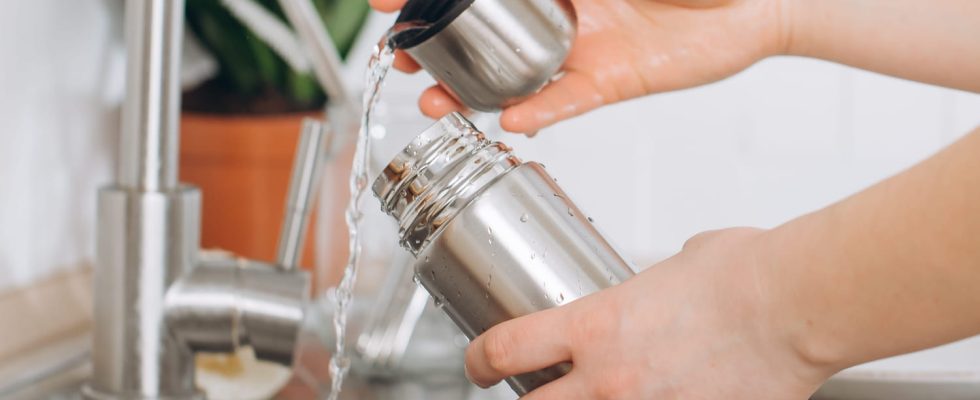The gourd has more than one advantage! Economical, practical, durable, stylish… It has conquered more than one and you may be one of them. But be careful, if you don’t take care of it, it can be a real breeding ground for bacteria! We explain to you.
There gourd has become an everyday object for many of us. It is one of the small ecological gestures easy to put in place to limit plastic at home. But this is not its only advantage. It also saves money, and is really practical because you can take it everywhere and fill it easily! It is also very trendy, there are many designs to please everyone. If the water bottle makes us crack and relegates plastic bottles once and for all to oblivion, it also has a disadvantage, not the least! If you don’t wash it regularly, watch out for bacteria ! This is what the professor of microbiology at the University of New York, in the United States, Philip Tierno explained to the American news website Mashable. Without maintenance, this everyday object becomes a real nest of bacteria. Our hands are in constant contact with bacteria: when we use our smartphone, when we turn on the light, when we call the elevator, when we open a door… When you use your water bottle, you open it with your hands . “As a result, everything on your hands ends up in the water” you drink, explains the professor. Bacteria will then accumulate inside your bottle, forming a “biofilm”, adds Philip Tierno. The risk ? These bacteria can cause intestinal upset.
Unfortunately, simply rinsing your water bottle with water is not enough to get rid of these bacteria. So how do you properly clean your bottle? It is essential to wash it daily using a brush with a handle, such as the one for cleaning baby bottles, hot water and washing up liquid. All parts of the bottle must be polished daily: interior and exterior walls, neck and cap. There is often a seal on the cap, it will also be necessary to think about cleaning it. You can take it off and soak it in hot water and White vinegar a few minutes, then scrub it with a toothbrush. This technique also applies to your coffee or tea thermos. A word of advice: prefer stainless steel bottles, bacteria cling less than on plastic.
